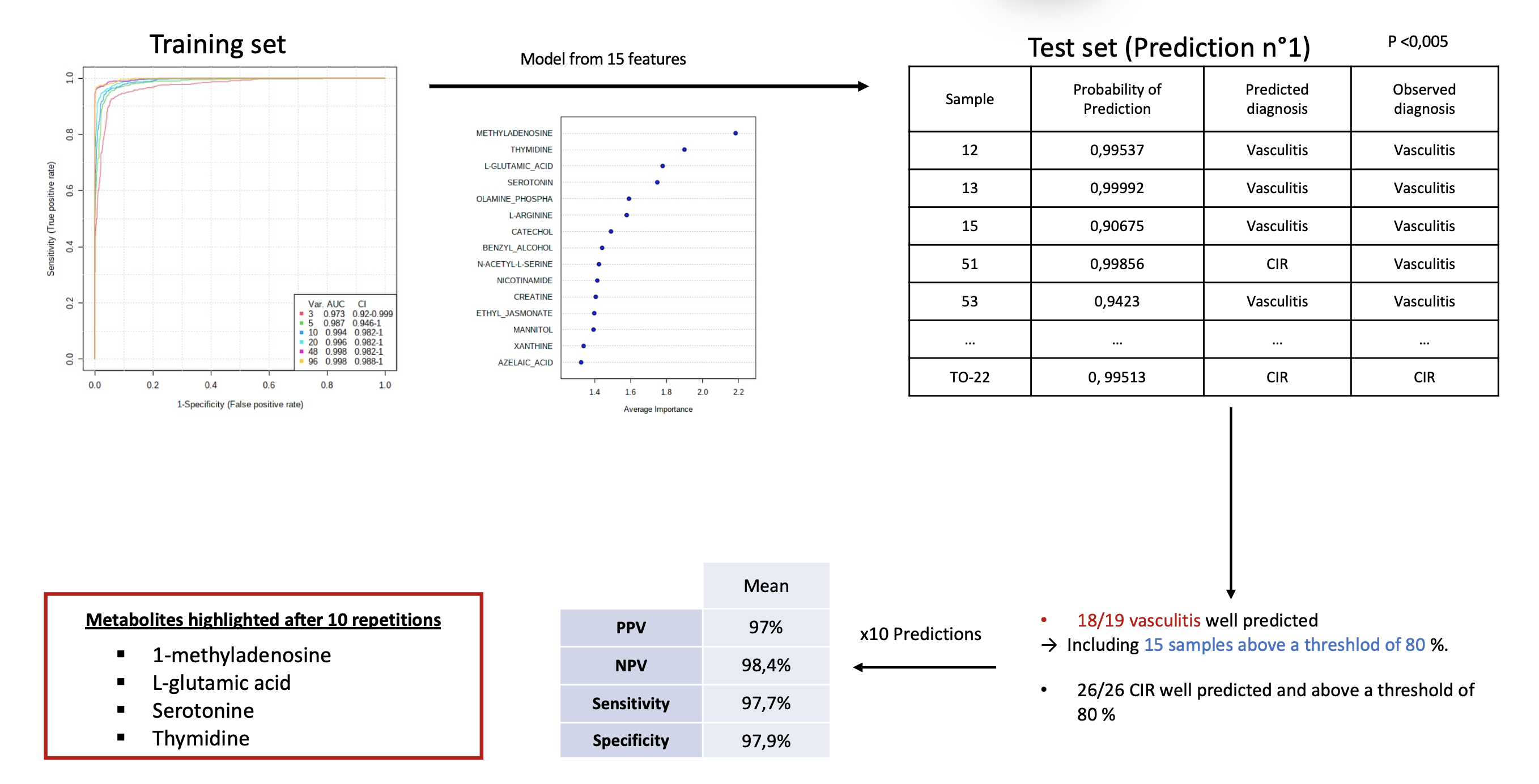Background/Purpose: IgA vasculitis is a rare systemic disease that is life-threatening mainly due to digestive or renal involvement. To date, there is no reliable diagnostic marker.
The objective was to explore the serum metabolome of patients with IgA vasculitis to identify potential diagnostic biomarkers.
Methods: We performed a cross-sectional study comparing the serum metabolome of patients with IgA vasculitis and controls with spondyloarthritis. Serum analysis was performed by high-performance liquid chromatography-mass spectrometry. Univariate and multivariate analyses were performed.
Results: We compared the metabolome of 55 patients with IgA vasculitis versus 77 controls with spondyloarthritis; matched for age and gender.
The median age of IgA vasculitis patients was 53 years old. Two-thirds of the patients were female (n=32). At diagnosis of vasculitis, 100% of patients had skin involvement and there was renal involvement in 69% (n= 38), joint involvement in 56% (n= 31), and digestive involvement in 42% (n= 23).
The multivariate metabolomic model resulting from patient serum analyses discriminated IgA vasculitis and spondyloarthritis with >90% accuracy; significantly on permutation tests (p< 0.01). Validation on the test sets revealed excellent predictive values on independent cohorts: sensitivity 98%; specificity 98%, positive predictive value 97% and negative predictive value 98%. These models identified 4 discriminative metabolites: 1-methyladenosine, L-glutamic acid, serotonin, and thymidine.
Conclusion: This study demonstrated an excellent diagnostic predictive model for IgA vasculitis based on the serum metabolome. These results need to be confirmed in a larger IgA vasculitis cohort, as well as with other control populations.
– Rank of the different metabolites (the top 15) identified by the PLS-DA according to the VIP score on the x-axis. Coloured boxes on the right indicate the relative concentrations of the corresponding metabolite in each group.
To cite this abstract in AMA style:
Boissais A, Blasco H, Emond P, Lefevre A, Bigot A, Mulleman d, Maillot F, Audemard-Verger A. A Predictive Diagnostic Model for IgA Vasculitis Based on a Metabolomic Approach [abstract]. Arthritis Rheumatol. 2021; 73 (suppl 9). https://acrabstracts.org/abstract/a-predictive-diagnostic-model-for-iga-vasculitis-based-on-a-metabolomic-approach/. Accessed .« Back to ACR Convergence 2021
ACR Meeting Abstracts - https://acrabstracts.org/abstract/a-predictive-diagnostic-model-for-iga-vasculitis-based-on-a-metabolomic-approach/


